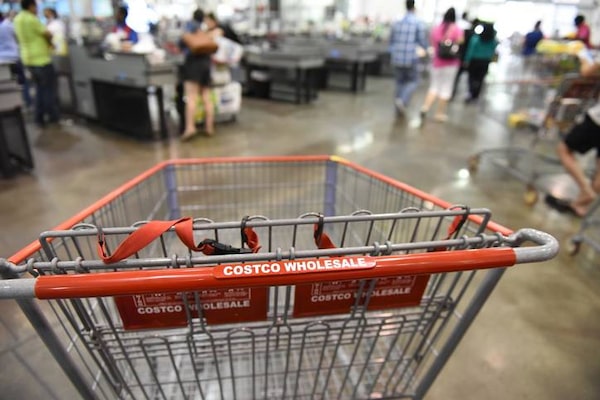
andykatz/Getty Images
Name: Mathew Kuruvilla
Age: 30
Annual income: $90,000-$100,000
Household savings: $50,000
Household debt: $380,000 mortgage
What he does: Medical professional
Where he lives: Whitby, Ont.
Top financial concern: "My wife and I, we want to gain financial stability. We don't believe in the posh lifestyle. It's all about a moderate lifestyle."
Mathew Kuruvilla never expected to make Canada his home. But after his several family members came over, he got a phone call from Toronto. My grandfather said: 'Why don't you emigrate?'" he says.
After taking out permanent residency, Mr. Kuruvilla, 30, arrived in November, 2014, from Kerala, India with his wife and infant son in tow.
Within a week he had secured a job. "I initially ended up working as a call centre guy," he says. And in February of 2015, he got a medical licence. "Within a week, I got into my chosen field," says Kuruvilla, adding that he chose a job in Peterborough, Ont. with a solid salary and great benefits package. "I thought: Why don't I stay here?" he recalls. He is now a permanent Canadian resident.
In the past two years, Mr. Kuruvilla has purchased two cars and a home in Whitby, Ont. He's had a second son. And his wife, also a medical professional, brings in $30,000-$40,000 in part-time work while saving the family daycare costs by working from home. The family has built up savings of $50,000 by living modestly: shopping at Costco for groceries and clothing and eating in restaurants infrequently.
Mr. Kuruvilla's plan now is to begin setting aside money for his children's RESPs and starting up RRSPs for him and his wife.
He's learned two key things since arriving from India: that Canada is expensive. And that being handy can go a long way in saving money. "You have to do things yourself," Mr. Kuruvilla says. "You have to be handy and you have to be really smart when you shop."
"I can say that Canada is better for me [than India]. We made it without any help."
His typical monthly expenses:
$1,840 on mortgage. "We only put 5 per cent down. We pay $920 biweekly. I owe $380,000.
$255 on utilities.
$83 on home insurance.
$300-$400 on groceries. "We buy at Costco or some things at Superstore. We use Split – an app that price matches products."
$565 for car financing. "We have two kids so I bought a new 2016 Dodge Caravan for my wife. I also have a used 2012 Toyota Corolla. It's paid off."
$417 on car insurance. "It recently went down because we've had no accidents. And I pay once for the whole year."
$500 on gas. "I travel almost 190 km a day for my work."
$150 on eating out. "Once in a while we go out. Mostly Chinese places. My kid likes McDonald's because of the play area. We also go to Rib Fest but prices have gone up. Last time we paid $40 for two racks of ribs."
$80 for Internet and home phone. "It includes unlimited calling to 250 countries. It's through ACN – they use the Bell service lines."
$70 for cellphone. "It's Virgin Mobile. It's the cheapest plan. My wife is using the second phone, an iPhone."
$99 on a gym membership. "We joined the YMCA on a family membership."
$200 on clothing. "My wife always shops. We always buy from Costco; she goes to Reitmans, Tommy Hilfiger, Zara. We just found the Vaughan Mills Mall; we found there are outlet stores. We've been there twice in a month."
$7,000 a year on holidays/trips. "We are going to India in December. My sister is getting married and my brother is getting married. It will $3,000 in airfare just for me."
$6,000-$8,000 a year for home renovation. "We're planning on changing the floors. We're getting quotes."
Are you a millennial who would like to participate in a paycheque profile? Send us an e-mail.